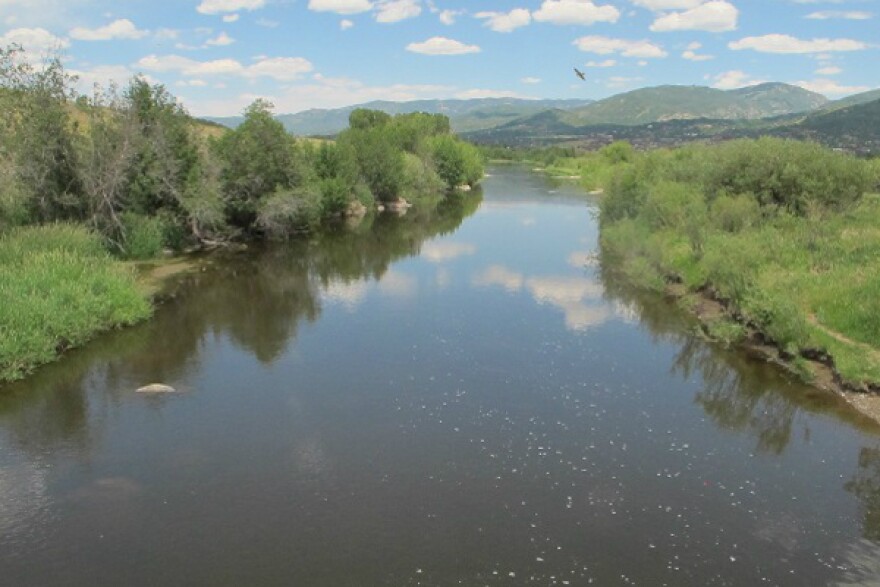For the first time, water users from Colorado’s nine river basins are meeting to discuss their individual basin wide water plans. The users are presenting their assessments in Rangley, Colorado.
Their goal is to create a comprehensive statewide water plan.
Over the last nine years, more than 800 meetings have been held across the state in conjunction with made up of water stakeholders. In 2013, following years of drought, Democratic Governor John Hickenlooper charged the Colorado Water Conservation Board to create a to better manage water across Colorado.
The CWCB, which provides direction on state water policy, asked the roundtables to develop their individual assessments which could be merged into a larger, more comprehensive plan.
Colorado is one of the last remaining western states without a statewide water plan. Changes in population, as well as recent drought conditions prompted the need.
Water conservationist Gary Wockner, head of environmental groups and , is concerned the current water plan being developed is wrought with issues. In a statement issued in and reiterated in a recent Denver Post , Wockner said the water plan includes projects that are not healthy for the state’s rivers.

“This water developer plan further destroys Colorado’s rivers to fuel and subsidize population growth and fracking in Denver region from Pueblo to Greeley,” said Wockner.
James Eklund, director of the , said all water users including conservationists have been invited to the planning table, and he believes the plan will include their concerns and their solutions.
“Many, if not all of the basin roundtables have had some input from conservation groups or environmental organizations that are really viewing this plan as an opportunity to make sure that we’re heading in the right direction for the state,” Eklund said.
The first draft of the Colorado Water Plan will soon be presented to the governor. Eklund said there will be no immediate actionable projects in the draft, but it will be the start of a comprehensive water roadmap for the state.
“The first draft of the water plan isn’t going to endorse certain water projects over others, but it will describe a process by which we can be more flexible and agile as a state and get to the water future that we want not by accident,” he said.
The final plan is scheduled to be submitted to the Governor by .
Editor's Note: This post was updated for clarity.







